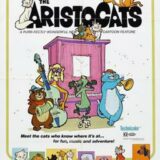Five Easy Pieces
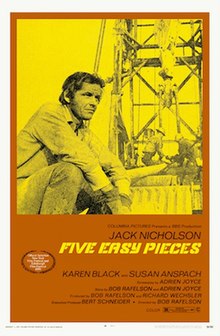
Five Easy Pieces is the movie that brought in the decade of the 1970s. It’s a movie of angst, anger and longing for something else. While I am not a fan of this movie upon a re-watch, looking at it with 21st century eyes, you can see that it’s a perfect transitional movie. It’s definitely a “New Hollywood” movie, but just not as good as the ones to come later in the decade.
Synopsis:
IMDB – https://www.imdb.com/title/tt0065724/plotsummary?ref_=tt_stry_pl#synopsis
Rotten Tomatoes – https://www.rottentomatoes.com/m/five_easy_pieces
My Take:
If you remove Karen Black from this movie, it would be a tough watch. Jack Nicholson is just a sullen asshole for an hour and thirty-eight minutes. She gives the movie a soul and notched her an Oscar nomination for Actress in a Supporting Role. Jack Nicholson also was nominated for a Best Actor.
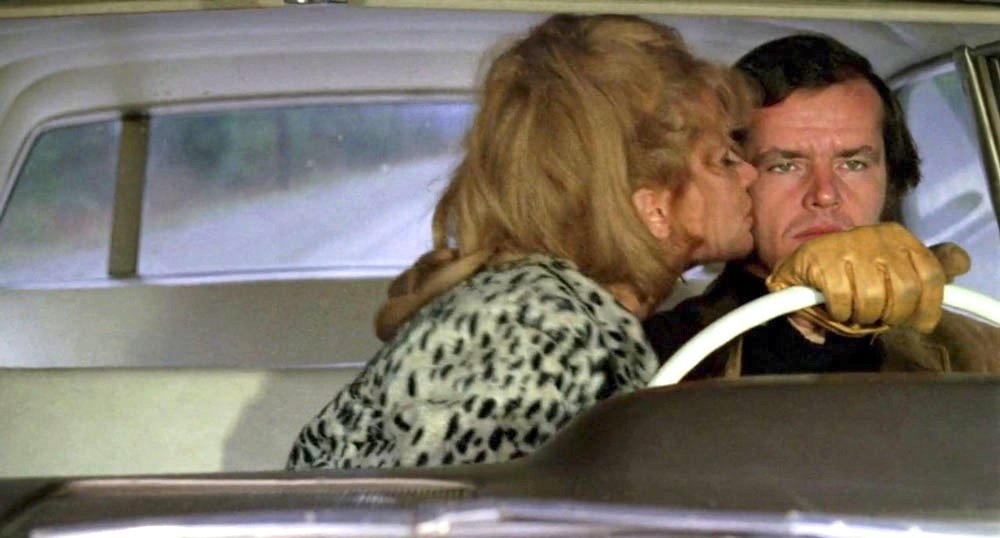
We’ve seen Nicholson’s character countless times since this movie. Each generation since the 70’s has had their version of this story, which is why I was a bit bored with seeing another rich and talented guy that doesn’t seem to have purpose to find his way. Disillusionment and daddy issues seems to be a well that Hollywood often taps. Add in a little loneliness and you would have a movie today that would garner acclaim. Add Brad Pitt and you would have the Fight Club prequel.
That said, there were some highlights that have stuck with me since I first saw this movie thirty or so years ago, and still work well today. The diner scene when Nicholson’s character just wants to have a side of toast was a truly genius scene. Well written, well-acted, and well directed. It holds up as a great scene.

Things I noticed:
The music was great. While Nicholson’s character was a trained concert pianist, the first half of the just country music. This is the oldest movie that I can think of where contemporary country set the mood for the film. Tammy Wynette’s “Stand By Your Man” opens the movie, with “D-I-V-O-R-C-E” playing an interesting set piece in a later scene. The 70’s and 80’s had quite a few interesting movies featuring country as a mood setter, but this one might have set the trend.
Also, Ralph Waite did have a weird ass walk and just way over acted in this movie. I know there was a scene that was dedicated to this, but he took me out of every scene he was in. Perhaps I just had flashbacks of “The Walton’s” (which I just barely remember watching), but his character was such a theatric throwback to the 60s that it’s what makes me consider this movie a transition between the character studies of the 70s and the more theater driven movies of the studio system. They were still figuring out how to act in movies.
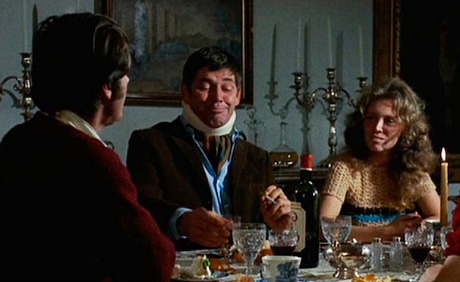
Finally, anyone want to explain THAT sex scene to me? I guess I’m just not getting the moving around in circles while Nicholson is wearing a shirt and we get a slight look at Sally Struthers boobs.
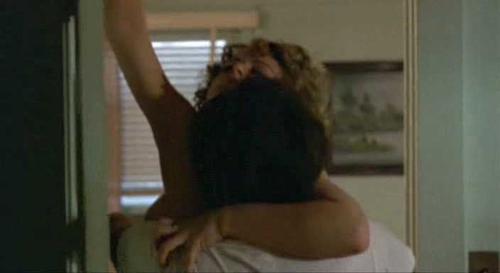
1970 wasn’t a great year for movies. Whether I’d still nominate Five Easy Pieces for the Best Picture Nomination 50 years later, I’m not sure. We’ll have to wait for “I Watch Old Movies” podcast for that discussion. I get why it was nominated for the year. I also think it holds up, but not for the same reasons it was originally critically acclaimed. It’s a foundation movie, but not as good as really could have been with a bit smarter writing.
Would this be fresh today?
As I said above, it’s been made before, and would need to substitute a little angst for a little loneliness, but it does have classic themes. The problem is in the 70s this was a twenty-something role. In the 2020s this would work a bit better for an actor a bit older. With an older actor in the part there would be a more melancholy feel to the movie. I’m just not sure it would play the same, as an asshole in your 20s is a bit different than one in their 40s or 50s. When an asshole gets older, they get just a bit more pitiful.
It’d probably be the basis of a TV show now. It wouldn’t be 12 episodes here, but the anti hero plays nowadays.
